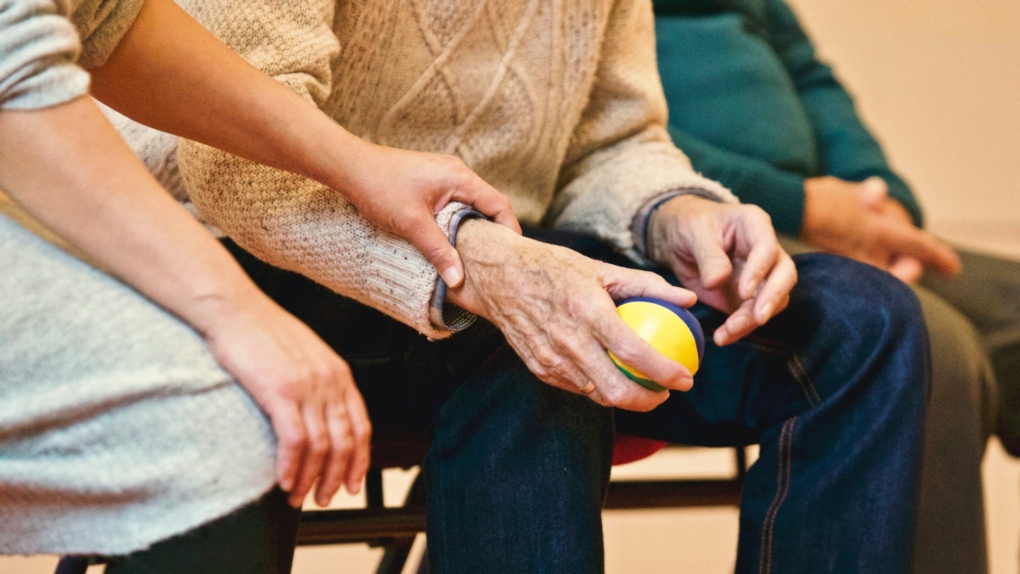'A fundamental human experience': New study suggests family caregiving can lessen depression
 New study suggests that caregiving may lessen states of depression (Pexels/Matthias Zomer)
New study suggests that caregiving may lessen states of depression (Pexels/Matthias Zomer)
Despite increased levels of stress and trauma associated with caring for an ailing loved one, a new study suggests that family caregiving can lead to less depression in adults.
Published in the journal Advances in Life Course Research, the research, which was conducted at the University of Texas in Austin, sought to challenge previous notions that caregiving can lead to declines in mental health and general wellbeing.
"Decades of research on this topic indicate that there are positive and negative aspects to being a caregiver," said study author Sae Hwang Han, an assistant professor in the Department of Human Development and Family Sciences, in a press release from the University of Texas.
"It's widely assumed the negatives far outweigh the positives, that caregiving is a chronic stressor and that it contributes to worse health and well-being. But the evidence doesn't always bear that out.”
While previous studies start by identifying caregivers and comparing their well-being to non-caregivers, Han says prior findings don’t account for the fact that caregiving is often initiated by a “depressing event,” such as a diagnosis, a tragic accident, or a general decline in a loved one’s well being.
“It's unsurprising that these studies would find a heightened risk of depression in caregivers compared to non-caregivers, who often do not have serious health problems in the family,” Han explained. “That's a misleading comparison, just as it would be misleading to compare the well-being of someone going through chemotherapy to someone who doesn't have cancer."
Han and fellow researchers with the University of Texas at Austin assessed a group of adults over the age of 50 who had a living mother. As some of their mothers became cognitively impaired or generally disabled with age, researchers tracked the mental health of these adults who now shouldered the responsibility of caregiving. Although researchers found a clear correlation between adult children becoming more depressed as the health of their mothers deteriorated, there was no evidence that suggested the process of caregiving itself worsened or instigated a decline in mental health.
In fact, researchers found the opposite.
According to surveys, caregiving “alleviated the extent to which adult children became depressed in response to their mothers' health problems, suggesting that there may be something protective about being able to help others we care about,” Han explained in the release.
The study says that caregiving offers an opportunity for a “fundamental human experience,” fostering qualities such as empathy, responsibility, and connection for caregivers.
Despite outlined benefits that could be drawn from the experience of caregiving, the study also calls on furthering policies that meet the needs of caregivers.
The study, which was supported by U.S. agencies the Center on Aging and Population Sciences and the National Institute on Aging, intends to debunk some of the misconceptions that caregiving is merely a “source of dread,” said Han.
"There is no disputing that caregiving can be a very stressful experience," he said. “But some stressful experiences also make you more resilient and help you grow."
CTVNews.ca Top Stories

BREAKING Czechia scores late to eliminate Canada from world juniors
Jakub Stancl scored his second goal of the game with 11.7 seconds left in third period as Czechia survived a blown 2-0 lead to defeat Canada 3-2 and advance to the semifinals at the world junior hockey championship on Tuesday.
Canadian couple lives on cruise ships — with no plans to return to land
With 75 countries and territories visited, a retired Canadian couple is making the most of life as they cruise full-time, from coast to coast. They're part of a growing trend of people opting to retire at sea.
Planes catch fire after a collision at Japan's Haneda airport, killing 5. Hundreds evacuated safely
A passenger plane and a Japanese coast guard aircraft collided on the runway at Tokyo's Haneda Airport on Tuesday and burst into flames. Transport Minister Tetsuo Saito confirmed that all 379 occupants of Japan Airlines flight JAL-516 got out safely before the plane was entirely engulfed in flames.
Israeli strike in Lebanon kills senior Hamas official Saleh al-Arouri: security sources
Senior Hamas official Saleh al-Arouri was killed on Tuesday night in an Israeli drone strike on Beirut's southern suburbs of Dahiyeh, three security sources told Reuters.
A missing person with no memory: How investigators solved the cold case of Seven Doe
Police specializing in missing people and cold cases have discovered the identity of a woman with no memory in one of the most unusual investigations the sheriff's office has pursued and one that could change state law.
Weight-loss drugs: Who, and what, are they good for?
Extraordinary demand, and high prices, for powerful weight-loss drugs will keep them out of reach in the coming year for many patients who are likely to benefit.
Woman who fell out of Edmonton city bus dies
A woman who fell out of an Edmonton city bus Friday has died, police said in a media release issued Monday.
Canada's 100 highest-paid CEOs broke new compensation records in 2022: report
Canada's 100 highest-paid CEOs broke records with their compensation in 2022, according to the Canadian Centre for Policy Alternatives.
Russian missiles hit Ukrainian cities, killing 5 and injuring almost 100, Kyiv officials say
Ukraine's two largest cities came under attack from Russian hypersonic ballistic missiles on Tuesday morning, killing at least four people and injuring almost 100, officials said.



























